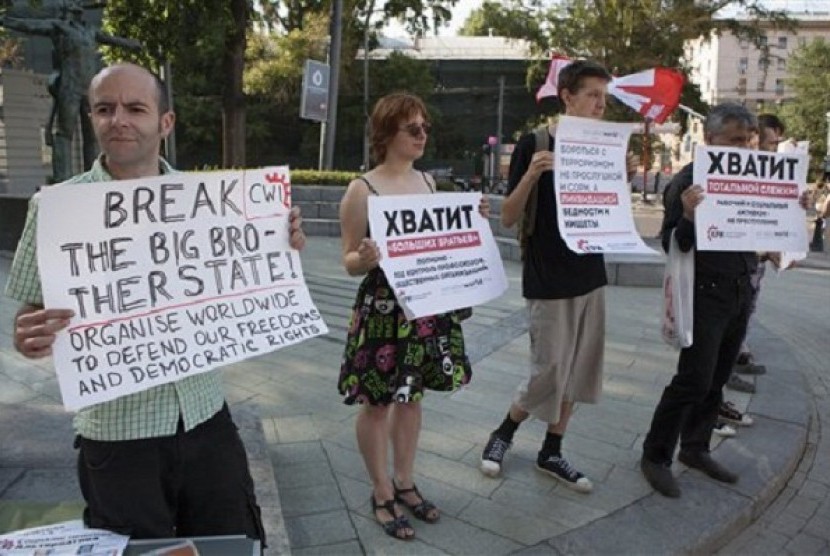REPUBLIKA.CO.ID, MOSCOW - Russian immigration officials said Saturday they have not received an application from Edward Snowden, the US National Security Agency leaker who wants to get asylum in Russia.
Snowden came to Moscow's Sheremetyevo international airport on June 23 from Hong Kong, apparently intending to board a flight to Cuba. But he did not get on that flight and is believed to have spent the last three weeks marooned in the airport's transit zone.
On Friday, he met with human rights activists there and said he would seek Russian asylum, at least as a temporary measure before going to Venezuela, Bolivia or Nicaragua, all of which have offered him asylum.
But the Interfax news agency quoted Russian migration service head Konstantin Romodanovsky as saying no asylum request had been received as of Saturday. The state news agency RIA Novosti cited migration service spokeswoman, Zalina Kornilova, as also saying no request had been received.
Snowden had made a previous bid for Russian asylum, but President Vladimir Putin said he would have to agree to stop further leaks of information about American intelligence service activities before it would be considered. Snowden withdrew the bid, but participants in Friday's meeting said he was now ready to agree to stop leaks.
Granting asylum to Snowden would add significant new stress to already-troubled Washington-Moscow relations. Putin and President Barack Obama are expected to hold a summit in Moscow in early September, right before both take part in the Group of 20 summit in St. Petersburg, and the Snowden issue could overshadow both gatherings.
Obama and Putin discussed Snowden, among other issues, during a telephone call on Friday, the White House said in a terse statement that provided no specifics of their conversation about the NSA leaker. White House spokesman Jay Carney said the call was planned several days ago, suggesting that it was unrelated to Snowden's meeting with the activists.
Russia so far has sidestepped the issue by claiming that it cannot take action on Snowden because his presence in the transit zone puts him technically outside Russian territory. But by agreeing to the condition that he stop leaks, Snowden could force Russia's hand.
Friday's meeting in the airport's transit zone included representatives of Amnesty International and Human Rights Watch. The presence of these internationally respected organizations could add weight to Snowden's asylum bid.
US State Department spokeswoman Jen Psaki said Friday the United States disapproved of Russia facilitating what she called a "propaganda platform" for Snowden, "despite the government's declarations of Russia's neutrality with respect to Mr. Snowden."
On Saturday, Russian Foreign Minister Sergey Lavrov aimed to keep up the appearance of neutrality. "We are not having contact with Snowden," he said at a meeting of a regional security organization in Kyrgyzstan, according to Interfax.


